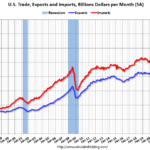Yves here. Thomas Neuburger ruminates on Ryan Grim’s election predictions. The big takeaway is neither Trump nor Harris would be able to do any where near as much as their opponents suggest. However, there is plenty of scope for increased harm in the international arena. It would not be hard to see either of them compensating for domestic frustrations by trying to take reckless bold moves abroad.
Many people have made election predictions (some in abundance), but few have looked at the post-electoral state. What happens if Harris wins? What does a Trump II world look like?
I offer below what Ryan Grim sees post-November. I think in the main he’s right. His virtue is that he avoids conventional thinking and looks at what’s real.
The whole piece went out to his Drop Site News subscribers and is also available there. But I’d like to offer it here; I know our readers are thoughtful and decidedly unconstrained by conventional ways. No one wants to fall prey to “what everyone knows to be true” without close examination.
Grim’s analysis, with his permission, is printed in full below. Some comments first.
Grim holds that if Harris wins, it will work like a loss. First, she’d likely rule without House and/or Senate support.
Would Democrats, especially decidedly unpopulist ones, be willing to take advantage of the advantages that populism-by-executive order confers? They haven’t yet. Grim is doubtful they will — to do so, Harris would have to find “populist Jesus” — and I would agree. Democrats are self-defined as the party of status quo Jesus. “Nothing will fundamentally change,” we’re regularly told, a contrast to the change their electoral opponents would bring.
For that plan to work, people have to like what they see. Playing it safe in a land this dissatisfied won’t produce lasting wins.
Grim also thinks a Harris win now tees up a Republican win in 2028. A status quo powerless Democrat with no personal base of support (“support for Kamala is more accurately described as opposition to Trump and support for Democratic policies generally”), ruling a party reduced to “an upper-middle-class center,” is not a winning combination, especially if it follows a term where little gets done.
After a Trump win, many predict a dictatorship. Grim disagrees:
“Without the court or the military” — sounds pretty third-world to me. That’s how Egypt is ruled. Just wanted to point that out.
What it looks like when all the ripe apples have dropped is anyone’s guess. Grim thinks its possible that Republicans, if Democrats keep shedding their base, could “lock in generational power” in 2028.
We’ll see if that’s true: it’s a “dangerous coalition” indeed. What happens with working class Sanders populists — yes, there are many; Sanders might have wiped the floor with 2016 Trump — is clearly up in the air. Rich material for a novelist.
Here Grim is silent, but we don’t have to be. At this point, no president can oppose the cemented-in apparatus, our heroes who “maintain security.” (Trump on Joe Rogan talked about how he was convinced not to release the JFK files as he first intended. Listen between the lines and you hear, “Sir, you don’t want to do that.”)
There are only two end points historically for this kind of collision — a state in chaos (think ‘60s and ‘70s rebellion) or a locked-down, Stasi society, surveilled and policed. Ask yourself, how would today’s guardians of security handle the 1960s? Gloves on or gloves off?
Now for Grim’s analysis. If you want just his bottom line, skip down to “What It Means”. Enjoy.
Ryan Grim’s election predictions
What will realistically happen if Harris or Trump wins
Just like Jeff Bezos, I would never tell you who to vote for. You don’t need that from me anyway. What I can do though is offer a few thoughts on what might happen if either candidate is elected, which I haven’t seen anybody try to do with any seriousness.
According to Elon Musk, if Kamala Harris wins, there’ll never be another election, and according to lots of Democrats, if Trump wins, he’ll turn into a dictator. Both are wrong. The truth is more complicated but not necessarily less frightening. In tonight’s newsletter, I’ll game out what that might look like. (Scroll down for that.) …
If Kamala wins:
Congress goes
If Harris wins, the chance she also takes Congress relies on a number of miraculous upsets. Joe Manchin is leaving the Senate, and his Senate seat is leaving the Democratic caucus for the rest of all of our lives. That takes Dems from 51 down to 50 seats. Jon Tester won extremely narrow races in Montana in 2006, 2012, and 2018, and he’s about as good a rural politician as you’re going to find, but Montana’s rightward drift might be too much for him to overcome. Polls have him down. If they’re right, he’s toast, and that brings Democrats down to 49 seats.
To get back to 50 – which would let Tim Walz break ties – they’d need to hold on to Ohio, Pennsylvania, Michigan, Nevada, and Wisconsin (all doable, even likely) but also win in either Florida or Texas – or Nebraska.
If you’ve been following our coverage of the Nebraska Senate race, you know independent populist Dan Osborn has a genuine shot at upsetting the incumbent Republican. Internal polls I’ve heard about from both sides, however, suggest Trump’s ads tagging him as a “Democrat in disguise” may have done enough damage to blunt his momentum. If he wins though, I’m confident he’d caucus with Democrats, and that would make a majority. But he’s still a longshot.
Colin Allred, the former NFL linebacker and member of Congress, has a credible chance of beating Ted Cruz. The question will be whether pollsters missed an influx of Democratic donors to the Lone Star state. If they did and the polls are slightly off, he could win. But he’s also a longshot.
Democrat Debbie Mucarsel-Powell could theoretically pull off an upset in Florida, but man is that hard to see. So Democrats would need one of those four longshots—Montana, Nebraska, Texas, or Florida—to come through.
And then they’d have to win the House, too.
Without the Senate, Harris will have a hard time confirming a dog catcher, let along a judge or a cabinet nominee. With the Senate but without the House, she won’t be able to get any of her agenda through. Worse, the debt ceiling will be hit in January, before she’s even inaugurated.
Bankruptcy?
With control of Congress, Republicans will play economic-armageddon brinksmanship, take a chunk out of the global economy, get our credit-ratings downgraded, and probably extract a chunk of fiscal flesh in exchange for simply agreeing to pay the bills that are due. The other possibility, that we actually go over the cliff and get a mini or major financial crisis can’t be ruled out.
Antitrust
Harris will then be left to govern strictly from the executive branch. She’d probably have to keep Lina Khan, whether she wants her as chair of the FTC or not, since Republicans wouldn’t confirm a replacement anyway. Her victory would be meaningful for climate action, as she’d continue to disperse and execute the clean energy policy and subsidies from the Inflation Reduction Act, while Trump would smother it (or send it all to Elon Musk?).
Taxes
Trump’s tax cuts also expire during Harris’s first two years in office, meaning she’ll negotiate their extension. There, she has the advantage, because if she does nothing, the old tax policy snaps back into place. Her ability to do anything at all her first two years would be limited to this tax realm and, potentially, immigration. She’s likely to sign a tough border and immigration bill into law.
It’s hard to see how she emerges from this two years with anything higher than an approval rating in the low-30s. Given she has no organic base of support—support for Kamala is more accurately described as opposition to Trump and support for Democratic policies generally—it’s impossible to say how low her floor is. We might find out.
Ukraine
Russia is making major advances in Ukraine and the U.S. public is no longer interested in the war. Harris will probably have to end it with some sort of ceasefire/non-deal that leaves Ukraine in a wildly worse off position than they’d have been in if they’d made a deal in early 2022—a deal the U.S. scuttled at the cost of hundreds of thousands of lives. Or she could prove she’s a tough commander-in-chief—leader of the “most lethal military” ever, as she puts it—by escalating the conflict and striking deeper inside Russia, risking nuclear war. Let’s hope it’s not that. The same dynamic could be at play with China, with much of her party leadership egging on confrontation.
The Mideast
I interviewed Israeli journalist Amir Tibon recently, who said that Netanyahu made a bet sometime around December that Trump would be elected president and therefore he was willing to take whatever minor grief he suffered from Biden for ignoring all the U.S. entreaties to protect civilians, allow in humanitarian aid, and negotiate in good faith toward a ceasefire. There was little grief. But, said Tibon, if Harris wins, Netanyahu will be exposed politically, and he predicted his government would collapse “within months.” A Harris win would signal to Netanyahu’s coalition partners that two of their big dreams will be at least put on hold for four years. Those two major ambitions, Tibon said, are reform of the Israeli courts in order to subsume them to the judiciary, and the Israeli settlement of Gaza. With those ambitions stymied, Netanyahu’s coalition becomes untenable.
Foiling Netanyahu’s bet on Trump is the most persuasive case I’ve heard for a vote for Harris. The problem, though, is what comes next. Tibon is confident a candidate from a coalition that does not includes the ultra-orthodox or settler movements would triumph and that any new government that replaced Netanyahu would be similarly supportive of the various Israeli war efforts, but more willing to cut a ceasefire-for-hostages deal. But I checked Tibon’s theory with people in Israel to the right of Tibon, and they agreed that the Netanyahu government would indeed fall and new elections would be called—but that Netanyahu would win those new elections.
Abortion Rights
Harris wouldn’t be able to get anything through Congress, but having Democrats control the Justice Department and Health and Human Services would put some of the brakes on right-wing states pushing ahead with increasingly aggressive abortion restrictions, including laws that make it a crime to “traffick” a minor across state lines to get an abortion. Such laws are plainly unconstitutional, but Trump’s DoJ would do nothing to stop them, whereas a Harris administration would.
Midterms
Every president faces brutal headwinds in their first midterm, and Republican gains are the most likely result of the 2026 midterms. The only pickup opportunities in the Senate would be in Maine and North Carolina, and both would be unwinnable in a Republican reaction year. The good news for Dems is they don’t have to defend many seats – Georgia and Michigan – but they’d still fall that much further behind in the House.
2028
Republicans would be the heavy favorites in 2028. Democrats seem to hate primaries, so maybe Harris doesn’t face one even if she’s in the low 30s, with Democratic rivals holding their fire for 2032. The most likely outcome, then, of a Harris victory in 2024 is a Republican sweep in 2029, giving them a trifecta and the opportunity to lock in Supreme Court control for several generations. That court could issue abortion-related rulings that would make Dobbs look downright liberal.
If Trump wins:
Let’s take seriously what Trump will actually do, versus what his opponents claim he’ll do. Some of the more lurid warnings, I think, are wildly overblown. But not all of them. It’s extremely likely he will assign significant resources toward a roundup of immigrants, and will do so in a flamboyant fashion, deploying the military if he can get away with it. If he’s extra lucky, there’ll be mass resignations of military brass as a result, allowing him to elevate loyalists.
Stephen Miller, a deeply dangerous and strategic man, will have immense power. Trans rights will be in the crosshairs and so will abortion rights.
I’m less worried about his promise to add a 20 percent tariff to everything. He continues to speak highly of Robert Lighthizer as his top trade adviser, and Lighthizer is very good at what he does. Lighthizer was Trump’s United States Trade Representative and lefty trade hands and unions were generally supportive of his approach, even as they had some disagreements. If Lighthizer guides trade policy, it won’t be reckless.
Trump’s tax cuts from his first term will also come up for renewal, and I’d expect he’ll successfully extend and deepen them, particularly for the rich and corporations.
He will fire an enormous number of federal employees. Whether he can hire enough to replace them is a different question, but at minimum he’ll be able to break a lot of federal agencies.
He’ll go after the American university system with a vengeance. Look at what Chris Rufo has managed to do in Florida under Ron DeSantis for a flavor of what Trump could do nationally.
He will rescind or simply not deploy much of the climate spending included in the Inflation Reduction Act. He hates eclectic vehicles, though his alliance with Elon Musk may protect some of that.
Supreme Court
Sam Alito and Clarence Thomas will retire, allowing Trump to appoint at least two more justices.
Trump, however, will not have the capacity to become a dictator. Even with two new justices, the Supreme Court is not willing to turn power over to him. Trump is their tool to wield power, and they will be content to see him retire from the field. Trump also lacks the support of the military leadership. Without the court or the military, he has no path to hold on to power illegally.
Voters will reject his displays of extremism at the polls in the 2026 midterms, likely delivering the House and Senate both to Democrats. They’ll impeach him immediately, just as Republicans will impeach Harris, but neither effort will have enough support in the Senate to go anywhere. In 2028, Republican voters will choose between J.D. Vance and opponents like Ted Cruz (unless he loses his Senate race, of course).
The economy will probably take a cyclical downturn toward the end of Trump’s term, and he’ll be deeply unpopular. Democrats would be favored to win in 2028 and likely hold Congress, too.
Mideast
It’s impossible to predict what Trump will do here. On the one hand, he calls himself “the candidate of peace”—on the other, he has said Biden’s biggest problem has been that he’s been too tough on Netanyahu and he should let him take the gloves off. Trump has been mad at Netanyahu for congratulating Biden on his win, but he knows Bibi has been rooting for him and doing what he can to help him win, and in Trump’s world alone, that means a lot to him. You know Trump as well as I do, I’ll let you guess on this one.
Ukraine
The conventional wisdom is that Putin will strike a deal to end the war if Trump wins, on favorable terms to Russia, given how much ground they’ve gained. On Ukraine, the CW is probably right.
China
Trump will do way more jawboning of China than Harris would, but he seems to have no appetite for a war. Let’s hope that prevails.
What It Means
So far, we’ve talked about the near-term future relying on historical precedent. That only gets us so far. We also have to look at the coalitional trends underway and ask how a victory by each candidate influences each. If Harris wins, Democrats will be rewarded for having skipped the nominating process and overseeing a genocide in Gaza. They will have done so while embracing the Cheneys and other neocons expelled from the MAGA coalition. They will now have to be understood as a faction of the Democratic coalition. With Democrats already becoming increasingly militaristic, that only pushes the party further toward a confrontational imperial foreign policy.
Harris also ran detectably to Biden’s right when it came to labor, antitrust, and the economy. Winning on that message could convince Democrats that their dalliance with economic populism was unnecessary, which would speed up the class realignment already underway, with more working class voters of all races and genders feeling unrepresented by Democrats, who come to fully stand in for coastal elites. With Democrats representing an upper-middle-class center, that leaves a coalition of the working class and the super rich in the Republican party. That’s an extremely dangerous coalition, and while it will be hampered by Trump’s defeat, it would be structurally strengthened longterm by a Harris victory—unless Harris somehow finds populist Jesus like Biden did. There is still a strong faction of populist-progressives in the Democratic coalition, and Harris’s victory would not be the final word. But a Democrat who comes after Harris could be facing nearly insurmountable odds if Republicans are able to lock in generational power in 2028.
The short version is that there’s reason to be optimistic that Harris may win. There’s reason to be scared if she does. Or doesn’t. Hope that helps.







